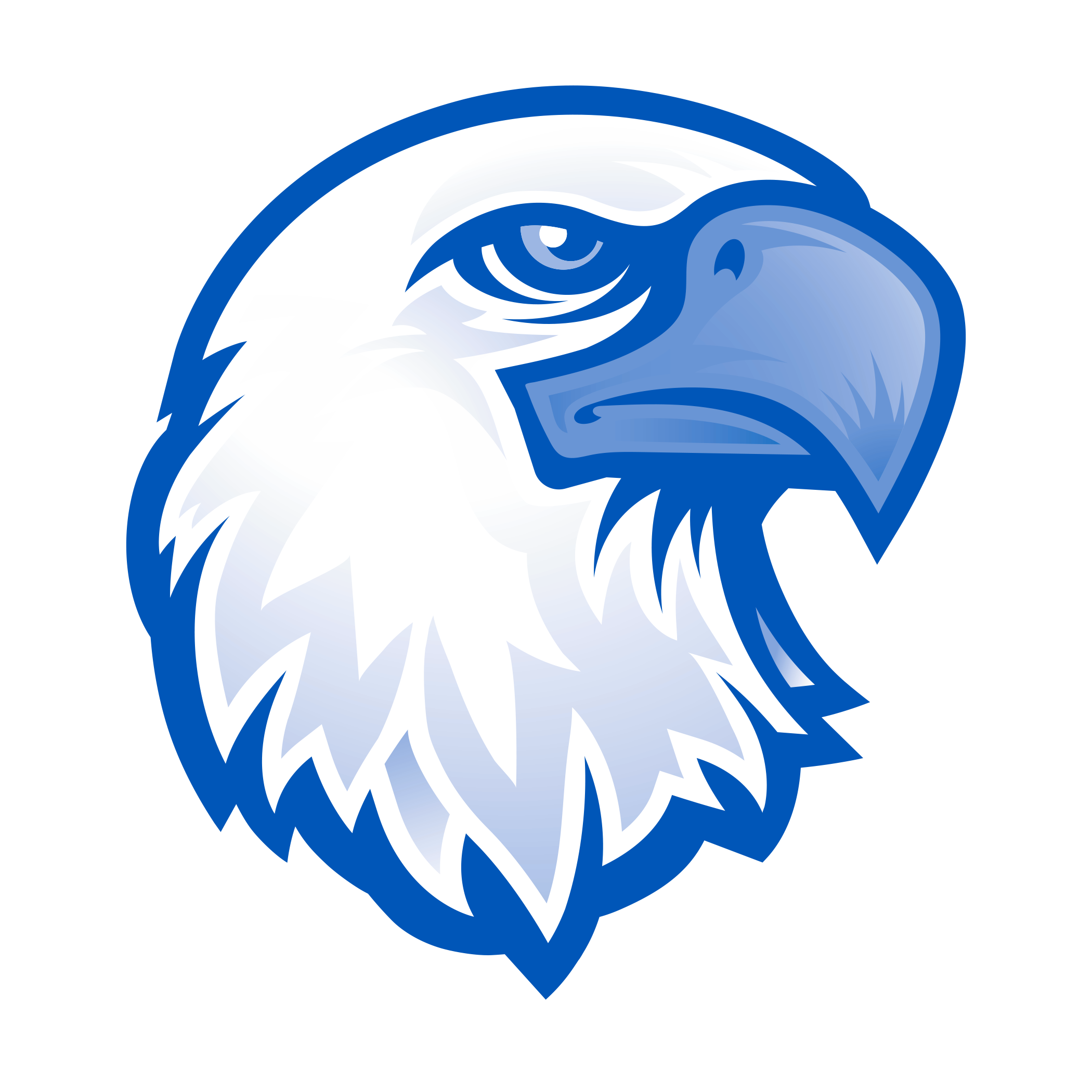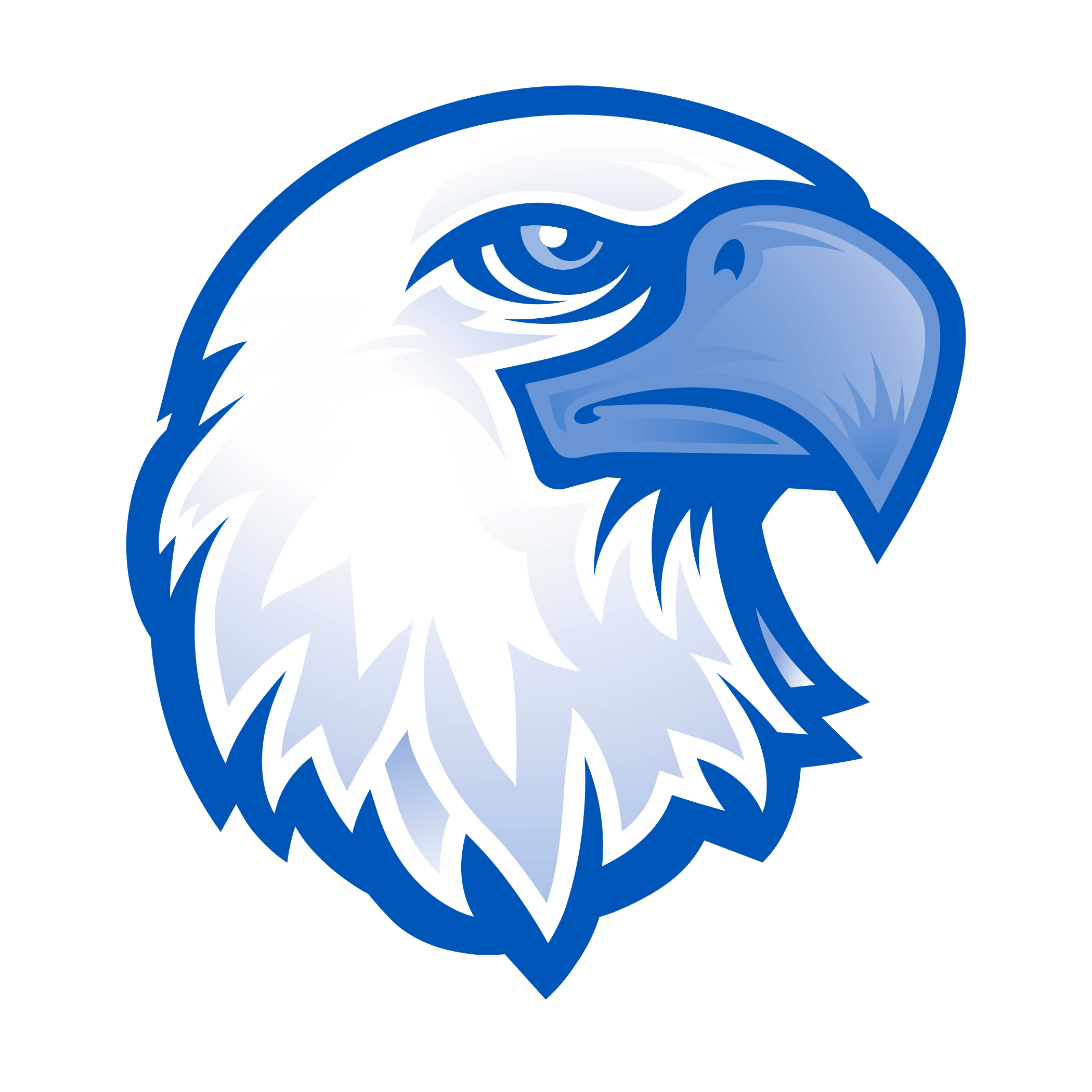Course Descriptions
The English 9 focus is on the integration of literature, grammar, and vocabulary. Exploring recurring literary devices and themes, students study short stories, poetry, drama, and novels. Writing workshops present students with standards for successful writing along with models that show the standards in action and tools for revising and editing as they create informational, narrative, and persuasive pieces. Daily practice builds students’ grammar skills with solid sequential instruction that flows naturally from the literature and aids in writing.
English 9 Honors is for students who excel in language arts: literature, writing, grammar, and vocabulary as well as speaking and listening. During this course students are introduced to more literature than the English 9-(100) course including additional short stories, independent reading, and an additional novel. Interpretation, reflection, and evaluation through personal responses, critical thinking, and literary analysis are emphasized. Additional and longer compositions require students to demonstrate greater writing proficiency as they synthesize ideas and information.
English in Grade 10, an integrated course in literature, composition, and oral communication, includes the study of literary forms through themes such as lessons from history and mythology. The thematic approach encourages perceptive readers who enjoy significant literature, and articulate writers, who can control and structure language to express critical and analytical responses to their reading. Students practice grammar and vocabulary skills in conjunction with their writing and speaking as they synthesize ideas and information. Topics from the literature and other appropriate sources are frequently the theme for writing narrative, informational, and persuasive essays as well as a literary analysis or research paper.
English 10 Honors is designed for students who have a special interest and ability in English. Although the basic format is similar to English Grade 10, students do more independent reading and writing. Interpretation, reflection, and evaluation through personal responses, critical thinking, and literary analysis are emphasized. Additional and longer compositions require students to demonstrate greater writing proficiency as they synthesize ideas and information.
Students encounter the many aspects of American Literature through a survey of American authors and major literary movements. In a variety of genres, philosophies, and literary styles, classics are emphasized; and students have the opportunity to read and discuss self-selected pieces. Along with a research paper, which examines issues rising from the course materials, students write persuasive, informative, and narrative pieces. Students tackle grammar conventions and vocabulary through their reading, writing, and speaking. Prerequisite: A student must pass English 10.
Students develop an understanding of the many aspects of American Literature through a survey of American authors and major literary movements. In a variety of genres, philosophies, and literary styles, classics are emphasized. Along with a literary-based research paper, students write rigorously, analyze literature, and participate in in-depth class discussions. Students also build college level vocabulary through their writing, reading, and speaking.
Through a close reading of works by British poets, novelists, essayists, and dramatists, students follow the impact of British thinkers and literary artists on Western thought. A combination of thematic and chronological organization allows students to study the history of the English language as well as read classic and contemporary self-selected novels. Additionally, students write persuasive, informative, and narrative pieces. Students build grammar and vocabulary skills through their reading, writing, and speaking. Prerequisite: A student must pass English 10.
This course is designed for juniors and seniors who have passed English 10 and explores cultural and social themes through the study of contemporary literature. Students will work on improving skills in the areas of text analysis, communication, collaboration, and writing (expository, persuasive, creative). The authors studied come from a variety of backgrounds and write in all genres. While some classic texts are utilized in this course, most texts are contemporary pieces of high interest to students. Students are expected to complete several independent, inquiry-based reading projects throughout the course as well as individual and group presentations. Prerequisite: A student must pass English 10. (Not an NCAA eligible English course)
This course is designed to meet the needs of students who will be entering the workforce or a two-year college program after graduation. Reading, writing, and speaking issues that emerge in the workplace dominate this course. Students read a variety of poetry, fiction, nonfiction, and plays. Working cooperatively is a major emphasis. An I-search career paper is required. Students share thoughts and opinions on workplace issues through discussions and writings. Students prepare a career portfolio. (Not an NCAA eligible English course)
This course is the study of mass communication (i.e. newspapers, magazines, television, and video). Students are expected to critique, review, analyze, reflect upon, and create media. Students learn the elements of successful publications through the use of technology. Prerequisite: A student must pass English 9 & 10. (Not an NCAA eligible English course)
Advanced Placement Language and Composition is a college course in a high school setting. The course stresses techniques of expository and argumentative writing, placing equal emphasis on structure, style, and content. Students write rigorously, participate in class discussions and make presentations to the class. Students research and produce reports using MLA and APA formats. Enrollment in this course requires the most current English teacher’s recommendation. There is a graded summer assignment that is due prior to the start of the course. The student is responsible for obtaining a copy of the assigned book(s). Students should consult with their counselors regarding dual enrollment credits.
Advanced Placement Literature and Composition is a college course in a high school setting stressing short stories, novels, drama and poetry. The course focuses on the development of writing and research skills. Students engage in class discussions, as well as compose essays that respond to and analyze literary works. Enrollment in this course requires the most current English teacher’s recommendation. There is a graded summer assignment that is due prior to the start of the course. The student is responsible for obtaining a copy of the assigned book(s).
This course encourages creative expression through student performance. The study of drama, scene production, and performance are emphasized. This course should appeal to those who enjoy creative activities. Performance and sharing are primary areas of emphasis. (This course is an elective and does not count as an English credit).
This course will introduce students to various forms of nonfiction writing. Forms include memoir, nature writing, lyrical writing, informal essays, and journalistic/observational writing. Students will read materials that support the writing curriculum. Students will produce a portfolio of writings. They will use online tools and sources for publication and research. (Not an NCAA eligible English course)
In World Literature, students develop an understanding of the depth and breadth of global literary traditions. Students write rigorously, analyze literature, and participate in in-depth class discussions.
Students build sophisticated college-bound vocabulary. A student currently enrolled in an Honors or AP level English course must achieve an 82% in that course to enroll in another Honors or AP level course and receive the recommendation of the current course teacher to enroll in an Honors course in the subject area.
This one-credit course offers students an introductory glimpse into the fascinating world of video production. Students will be exposed to valuable hands-on experience working with cameras, audio equipment, and state-of-the art digital editing and motion graphics software to produce numerous individual and small group projects. In addition, students will learn basic concepts of video editing and digital storytelling. (This course is an elective and does not count as an English credit.)
This year-long one-credit course is designed primarily for students considering a media/communications major at the post-secondary level. Intermediate video production techniques are the focus of the course. Students in this class are expected to serve in both on-camera and behind the scenes production roles for the morning announcements and broadcasts of school and district events. Students may be required and will be expected to participate in Video Production class activities outside the hours of the school day as part of their course of study. (This course is an elective and does not count as an English credit.) Prerequisite: Video Production I.
This one-credit course is designed primarily for students considering a media/communications major at the post-secondary level. Advanced video production techniques are the focus of this course. Students in this class are expected to serve in both on-camera and behind the scenes production roles for the morning announcements and broadcasts of school and district events. Students may be required and will be expected to participate in Video Production class activities outside the hours of the school day as part of their course of study. (This course is an elective and does not count as an English credit.) Prerequisite: Video Production II.











